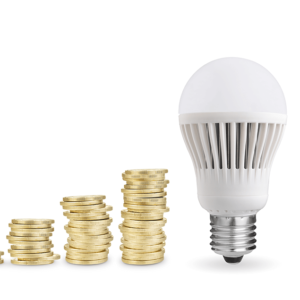Energy saving means you are using less energy to do the same tasks, reducing your home’s electricity waste and saving money. To effectively lower your energy consumption and save money, you need to be aware of how energy is used, where it’s wasted, and how it can be used more effectively and efficiently in your everyday life. In addition to being eco-friendly, Improving energy conservation in your home can help you conserve in other ways, like saving on your electricity and water bills. Energy saving in your home isn’t hard, and there are lots of ways to do just that. Some home energy conservation ideas may be expensive and complex, but others take just a few minutes and cost very little. We have gathered some tips for saving energy and being more efficient in both your home and your business.
If you have a problem with the electricity in your home, hire an electrician in Palestinian to reach you as soon as possible.
How to save energy in your home
Windows

Check your windows. Hot or cold air leaking out of the windows can make you uncomfortable in high and low temperatures and take a big chunk out of your utility budget in air conditioner costs.
Close all windows and doors during the day in summer, locking windows to eliminate leaks and shutting any curtains or coverings to stop heat gain.
During wintertime, reduce the cold flowing in with DIY plastic sheet insulator kits and nonconductor tools that seal your windows.
Also, ensure that your windows aren’t leaky, to make sure of this, hold a candle near closed windows on a windy day to see if the flame flickers or not. If it does, check that those windows are insulated properly and not broken or cracked. All of these ways will help you in saving energy.
Appliances

Reduce your appliance load, household appliances generate a lot of heat. If you generate heat inside in the summer months, it will be harder to keep your house cool.
Cook outside if you can, you can barbeque or make some light dishes, and run appliances such as the washer, dryer, and dishwasher first thing in the morning or last thing in the evening.
Heating and Cooling

Turn your thermostat up in the summer and down in the winter, and use the fans efficiently. During summertime, keep your air conditioning set at 25 degrees C. In wintertime, turn it off (especially when you’re sleeping or at work). Ceiling fans can be used to blow air down during summertime and draw it up in winter. Box fans will help move air across rooms.
Leaks

Stop small air leaks around your house. Check if your doors close tightly. If not, joints might be loose or the weather stripping might need to be replaced.
Also, check the water pipes. Adding insulation tape or perforated plastic foam around pipes in unheated spaces will keep them from freezing in winter and save energy. Finally, check the chimney if you have one to ensure that the flue seal is good.
Geothermal Energy for saving energy

To go all out in saving energy in your home, try geothermal. These systems conceal pipes filled with liquid, during the warmer months the system pulls the warm air out of your house, and in winter it goes in reverse. According to different research, geothermal systems save homeowners 20-55 percent in cooling costs and 35-70 percent in heating costs compared with conventional and traditional systems.
Top 10 energy saving advice
 Top 10 energy saving advice
Top 10 energy saving advice
- Change your light bulbs to LED.
- If possible, wash your clothes in cold water, in addition to saving energy cold water is also better for the fibers.
- Sealing holes, gaps, leaks, and adding insulation can save up to 15% on home heating and cooling costs.
- Clean or replace all the filters in your home regularly. Dirty filters make your system work harder and run longer than necessary so it consumes more energy.
- Use your oven instead of your microwave when cooking.
- To ensure that your fridge is running efficiently, defrost your refrigerator and freezer before ice buildup becomes ¼ inch thick.
- During warmer months, close curtains, shades, and drapes on the sunny side of your home to help keep your home’s temperature cooler and reduce the work for your Air conditioner. Open curtains during cooler months to let the sun warm your home.
- Don’t open the oven while baking! Every time you peek, the temperature can drop and make your oven use more energy to bring the temperature back up.
- Use natural light if possible, not electrical light bulbs.
- Set your fridge and freezer temperature to the manufacturer’s recommendation to avoid extra cooling and wasting energy.
Why should we be saving Energy?

Why should we be saving energy?
Upgrade your AC system, trade in your old refrigerator, or replace your roof, there’s lots of advice out there about how to save energy in your home. However, many suggestions and ideas require expensive updates to appliances you already own. While investing in newer, more efficient technology can pay off in the long run. Consider these easy energy-saving improvements you can make without extra cost. Actually, we’ve all read numerous tips on how to save energy, from turning off the lights when you leave a room to look for the energy star label when shopping for new appliances, but do any of those ways and tips really help that much? The answer is Yes! All those repeated and popular tips help you with saving energy. There’s a reason we see similar energy-saving tips over and over again, every single step you take to save energy helps you save money and reduce your home’s negative impact on the environment.
If we supposed that every one of us simply replaced one light bulb with a more energy-efficient option, we would save millions in annual energy costs and prevent a lot of greenhouse gas emissions per year. If a single light bulb switch can have such an influential impact, imagine the difference you can make with these quick and easy changes. Don’t forget to encourage your friends and neighbors to make these changes, too.





